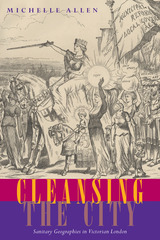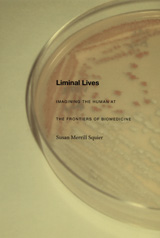
Cleansing the City: Sanitary Geographies in Victorian Londonexplores not only the challenges faced by reformers as they strove toclean up an increasingly filthy city but the resistance to their efforts.Beginning in the 1830s, reform-minded citizens, under the banner of sanitaryimprovement, plunged into London’s dark and dirty spaces and returned withthe material they needed to promote public health legislation and magnificentprojects of sanitary engineering. Sanitary reform, however, was not alwaysmet with unqualified enthusiasm. While some improvements, such as slumclearances, the development of sewerage, and the embankment of the Thames,may have made London a cleaner place to live, these projects also destroyedand reshaped the built environment, and in doing so, altered the meanings andexperiences of the city.
From the novels of Charles Dickens and George Gissing to anonymous magazinearticles and pamphlets, resistance to reform found expression in the nostalgicappreciation of a threatened urban landscape and anxiety about domestic autonomyin an era of networked sanitary services. Cleansing the City emphasizes the disruptions and disorientation occasioned by purification—a process we are generally inclined to see as positive. By recovering these sometimes oppositional, sometimes ambivalent responses, Michelle Allen elevates a significant undercurrent of Victorian thought into the mainstream and thus provides insight into the contested nature of sanitary modernization.

Drawing on archival materials of twentieth-century biology; little-known works of fiction and science fiction; and twentieth- and twenty-first century U.S. and U.K. government reports by the National Institutes of Health, the Parliamentary Advisory Group on the Ethics of Xenotransplantation, and the President’s Council on Bioethics, she examines a number of biomedical changes as each was portrayed by scientists, social scientists, and authors of fiction and poetry. Among the scientific developments she considers are the cultured cell, the hybrid embryo, the engineered intrauterine fetus, the child treated with human growth hormone, the process of organ transplantation, and the elderly person rejuvenated by hormone replacement therapy or other artificial means. Squier shows that in the midst of new phenomena such as these, literature helps us imagine new ways of living. It allows us to reflect on the possibilities and perils of our liminal lives.
READERS
Browse our collection.
PUBLISHERS
See BiblioVault's publisher services.
STUDENT SERVICES
Files for college accessibility offices.
UChicago Accessibility Resources
home | accessibility | search | about | contact us
BiblioVault ® 2001 - 2024
The University of Chicago Press









